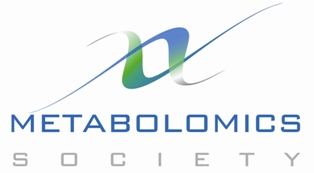
TMIC and the Metabolomics Society
Issue 59 - July 2016
CONTENTS:
Online version of this newsletter:
http://www.metabonews.ca/Jul2016/MetaboNews_Jul2016.htm

 |
| Published
in partnership between TMIC and the Metabolomics Society Issue 59 - July 2016 |
|
CONTENTS: |
|
|
 |
| TMIC
Services |
 |
Metabolomics Society News |
| |
Metabolomics Spotlight
|

| |
MetaboInterview
|
| Research
Fellow at the University of Birmingham, UK, co-founder
and trainer in the Birmingham Metabolomics Training
Centre, acting bioinformatics lead for Phenome Centre
Birmingham, and a committee member of the Early-career
Members Network of the international Metabolomics
Society |
|
 |
Biography Dr. Ralf Weber obtained his BSc degree in Bioinformatics from the HAN University of Applied Sciences in Nijmegen, Netherlands. In 2007, he moved to the University of Birmingham, UK, where he completed a PhD in computational mass spectrometry-based metabolomics. Since 2010, he has been a Research Fellow at the University of Birmingham working on a variety of environmental and clinical metabolomics projects. His research interests include the development and application of data processing, biostatistics, data mining, and machine learning tools to facilitate biochemical annotation and interpretation of clinical and environmental metabolomics data. |
 |
Metabolomics Current
Contents
|
Metabolomics Events
|
| 11-12 Jul 2016 |
Introduction to
Metabolomics for the Environmental
Scientist
|
| 17-21 Jul 2016 |
4th Annual Workshop
on Metabolomics Women, members of under-represented minority groups, and individuals with disabilities are strongly encouraged to apply. The metabolome, in distinction to the other –Omics, provides a better assessment of the exposure to the chemicals of life – it is truly intergenomic providing information on “metabolites” coming from ourselves or the model we’re using, the unique, non-human/mammalian compounds we consume as part of our food, compounds generated by the microorganisms that are part of “us”, and other compounds that are in the environments we live in. If ever precision medicine is able to deliver what is claimed it will, it has to include the metabolome context in which genes and proteins are operating. The themes in this fourth year of the workshop are:
|
| 17-21 Jul 2016 |
16th International
Conference of Biochemistry and
Molecular Biology The theme of the 2016 Conference ‘Signalling Pathways in Development, Disease and Aging’ will underpin the need for collaboration and cooperation of individuals from a wide range of professional backgrounds. Vancouver is an exceptional location for the Congress. It is renowned as one of the world’s most outstanding convention cities, with the sparkling Pacific Ocean and towering Coast Mountains providing a unique and spectacular setting. The IUBMB 2016 Conference will be held in the East Building of the Vancouver Convention Centre right under the famous sails and perched on the edge of the Pacific Ocean with wonderful space for both scientific presentations and commercial exhibition. The social program highlighting our West Coast cuisine, unique culture and arts, combined with the breathtaking natural beauty and pre- and post congress meetings and tours will underscore the role of Vancouver as one of the world’s most popular tourist destinations. The IUBMB 2016 Conference will provide a wonderful forum for you to refresh your knowledge base and explore the innovations in proteomics and genomics. The Conference will strive to offer plenty of networking opportunities, providing you with the opportunity to meet and interact with the leading scientists and researchers, friends and colleagues as well as sponsors and exhibitors. For further details, visit http://www.iubmb2016.org/. |
| 19 Jul 2016 |
Introduction to
Metabolomics for the Clinical
Scientist
|
| 7-9 Sep 2016 |
Metabolomics with the
Q Exactive
For further information and registration details, please visit http://www.birmingham.ac.uk/facilities/metabolomics-training-centre/courses/q-exactive.aspx or contact bmtc@contacts.bham.ac.uk. |
| 12-16 Sep 2016 |
2nd Metabolomics
Sardinian Summer School: "How to
bridge metabolomics and genomics" The Summer School will offer students theoretical sessions with lectures by experts, and hands-on data analysis aimed to deepen the theoretical and practical knowledge for using the main tools available to integrate metabolomics data. Main Topics
Target Audience The Summer School is targeted to researchers at an early stage in their career, from Biological Sciences, Health Sciences and other different background (Including bioinformatics and mathematics) who are interested in learning about both technical and cheminformatics tools to integrate metabolomics data. Applications The course is funded by the Regional Sardinian government and registration will be free of charge for all attendees. Selection will be based on CV and a letter stating the motivations for attending the course and future research plans of candidates. A letter of reference from the current supervisor must also be attached to the application. Registration includes course material, lunches and coffee breaks (not accommodation expenses). For selected participants contribution or reimbursement will be considered. Organizing Committee
For detailed information about the Summer School in Sardinia, visit http://sites.unica.it/metabolomicaclinica/events/. |
| 12-23 Sep 2016 |
2016 International
Summer Sessions in Metabolomics
|
| 10-12 Oct 2016 |
Max Rubner Conference
on Food Metabolomics For further information and registration details, please visit https://www.mri.bund.de/de/ueber-das-mri/veranstaltungen/max-rubner-conference/2016/. |
| 12-14 Oct 2016 |
Multiple biofluid and
tissue types, from sample preparation
to analysis strategies for
metabolomics
|
| 15-16 Oct 2016 |
Mayo Clinic
Metabolomics Workshop New this year: A focused workshop is available to a limited group of individuals based on availability. Scholarships for scholars and junior faculty are available. For further information and registration details, please visit https://matrix.secureserverdot.com/metabolomics_2016/home_live1.htm. |
| 3-4 Nov 2016 |
Metabolite
identification with the Q Exactive and
LTQ Orbitrap The course will be led by experts in the field and include significant hands-on experience using both the Q Exactive and LTQ Orbitrap instruments to perform,
For further information and registration details, please visit http://www.birmingham.ac.uk/facilities/metabolomics-training-centre/courses/metabolite-identification.aspx or contact bmtc@contacts.bham.ac.uk. |
| 28 Nov to 2 Dec 2016 |
Workflow4Experimenters
(W4E) Course 2016 Overview: Pre-processing, statistical analysis, and annotation of metabolomics data is a complex task. The Workflow4metabolomics online infrastructure provides a user-friendly and high-performance environment with advanced computational modules for building, running, and sharing complete workflows for LC-MS, GC-MS, and NMR analysis (Giacomoni et al., 2015). Goals: During this one-week course, participants will learn how to use the W4M infrastructure to analyze their own dataset.Morning sessions will be dedicated to methodology and tools. Afternoon sessions will be devoted to tutoring. Target audience: LC-MS, GC-MS and NMR experimenters (e.g., biologists, chemists) Registration fee: 750 € (Academia) and 1400 € (Industry); Fees include accommodations but not travel expenses Language: English Pre-registration: Monday 30 May 2016 to Friday 15th July 2016 at Workflow4Experimenters course 2016 Contact: contact@workflow4metabolomics.org For further details, visit http://workflow4metabolomics.org/training/W4Mcourse2016. |
| 8-10 Dec 2016 |
4th ICAN Conference
Series on Precision Medicine in
Cardiometabolic Diseases and
Nutrition-Related Diseases Save the date. Program and registration
coming soon: http://www.ican-series.com/ |
| 12-13 Dec 2016 |
Quality Assurance and Quality Control in Metabolic Phenotyping Venue: Birmingham Metabolomics Training Centre, School of Biosciences, University of Birmingham, Birmingham, UK This 2-day course will provide a comprehensive overview of the application of quality assurance (QA) and quality control (QC) in metabolic phenotyping. The course is aimed at students and researchers who are actively working in the field. Experts who have developed the application of QA and QC procedures within the field will lead the course. It will include both theoretical and practical components to
For further information and registration details, please visit http://www.birmingham.ac.uk/facilities/metabolomics-training-centre/courses/quality-phenotyping.aspx or contact bmtc@contacts.bham.ac.uk. |
| 17-18 May 2017 |
Conference on Food and Nutritional Metabolomics for Health Venue: The Ohio State University, Columbus, OH, USA The purpose of this two-day event is to disseminate state-of-the-art knowledge in the field of food and nutritional metabolomics and foster networking and collaboration among colleagues and industry partners. For more information please visit: https://discovery.osu.edu/focus-areas/foods-for-health/events/conference-2017.html. |
Metabolomics Jobs |
This is a resource for advertising
positions in metabolomics. If you have a job you
would like posted in this newsletter, please
email Ian Forsythe (metabolomics.innovation@gmail.com).
Job postings will be carried for a maximum of
four issues (eight weeks) unless the position is
filled prior to that date.
Jobs Offered
| Job Title | Employer | Location | Posted | Closes | Source |
|---|---|---|---|---|---|
| Lecturer/Senior Lecturer in
Systems Genomics |
The University of Melbourne | Parkville,
Australia |
30-June-2016 | 10-Aug-2016 |
The University of Melbourne |
| Senior Experimental Officer
for Untargeted Analytics for SYNBIOCHEM
Centre for Synthetic Biology |
University of Manchester | Manchester,
UK |
28-June-2016 | 10-Aug-2016 |
University of Manchester |
| Project Assistant Professor
in Sustainable Food Security, Faculty of
Life and Environmental Sciences |
University of
Tsukuba |
Tsukuba, Ibaraki, Japan | 24-June-2016 | Until filled |
Metabolomics Society Jobs |
| NMR
Metabolomics Technician, Phenome Centre |
University of Birmingham | Birmingham, UK | 17-June-2016 | 7-Aug-2016 | Metabolomics Society Jobs |
| Postdoctoral
Research Fellow in Marine Metabolomics |
Weizmann
Institute of Science |
Rehovot, Israel | 3-June-2016 | 31-Jul-2016 | Metabolomics Society Jobs |
| Junior
Faculty (Instructor/Assistant Professor)
in Metabolomics |
Icahn School of Medicine at Mount Sinai | New York City, NY, USA | 27-May-2016 | Until filled |
Metabolomics Society Jobs |
|
Ian J. Forsythe Double AB, MSc Editor, MetaboNews Department
of Computing Science
University of Alberta 221 Athabasca Hall Edmonton, AB, T6G 2E8, Canada Email: metabolomics.innovation@gmail.com Website: http://www.metabonews.ca LinkedIn: https://www.linkedin.com/in/ijforsythe Twitter: http://twitter.com/MetaboNews Google+: https://plus.google.com/118323357793551595134 Facebook: http://www.facebook.com/metabonews |
This newsletter is
published in partnership between The
Metabolomics Innovation Centre
(TMIC, http://www.metabolomicscentre.ca/) and the
Metabolomics Society (http://www.metabolomicssociety.org)
for the benefit of the worldwide
metabolomics community.
|